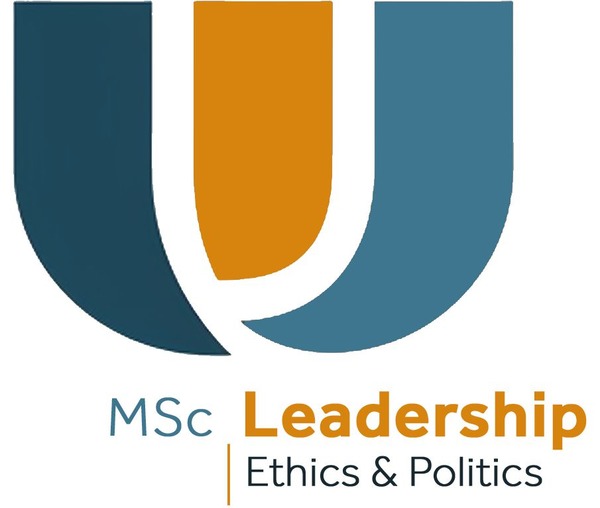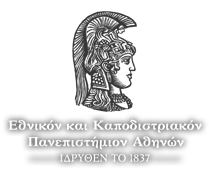Specula Principium: Images of Leaders (LEPE3)
Ευάγγελος Πρωτοπαπαδάκης
In this course, the fundamental axes of the formation of the genre of mirrors of princes will be studied, as well as the key historical milestones from the Stoic legacy and the Roman era, to the Christian Middle Ages and the decisive emergence of political Aristotelianism, the intense questioning of the genre during the Renaissance in Florence, up to the rise and evolution of the genre of state reason (raggione di stato). Special emphasis will be placed on the interdisciplinary nature of the course, which involves the history of ideas, political and constitutional science, ethics and political philosophy, and theology, as well as the arts, theater, and literature of the period. Comparative methodology will also be explored, including the study of different non-Western cultural traditions (Islamic, Jewish, Indian), their mutual influences, and their interactions with European leadership philosophy.
LessIn this course, the fundamental axes of the formation of the genre of mirrors of princes will be studied, as well as the key historical milestones from the Stoic legacy and the Roman era, to the Christian Middle Ages and the decisive emergence of political Aristotelianism, the intense questioning of the genre during the Renaissance in Florence, up to the rise and evolution of the genre of state reason (raggione di stato). Special emphasis will be placed on the interdisciplinary nature of the course, which involves the history of ideas, political and constitutional science, ethics and political philosophy, and theology, as well as the arts, theater, and literature of the period. Comparative methodology will also be explored, including the study of different non-Western cultural traditions (Islamic, Jewish, Indian), their mutual influences, and their interactions with European leadership philosophy.
In this course, the fundamental axes of the formation of the genre of mirrors of princes will be studied, as well as the key historical milestones from the Stoic legacy and the Roman era, to the Christian Middle Ages and the decisive emergence of political Aristotelianism, the intense questioning of the genre during the Renaissance in Florence, up to the rise and evolution of the genre of state reason (raggione di stato). Special emphasis will be placed on the interdisciplinary nature of the course, which involves the history of ideas, political and constitutional science, ethics and political philosophy, and theology, as well as the arts, theater, and literature of the period. Comparative methodology will also be explored, including the study of different non-Western cultural traditions (Islamic, Jewish, Indian), their mutual influences, and their interactions with European leadership philosophy.
Syllabus
Course Syllabus
I. Mirrors of Princes: Introduction to a Distinct Genre of Political Thought
II. Mirrors of Princes: The Hellenistic Legacy
III. Christian Theology and the Tradition of Mirrors of Princes
IV. Political Aristotelianism I
V. Political Aristotelianism II
VI. Medieval and Renaissance Art and the Genre of Mirrors of Princes
VII. Florentine Political Philosophy and Pre-Machiavellian Charisma
VIII. Islamic Political Literature and Mirrors of Princes
IX. Jewish Political Tradition and Mirrors of Princes
X. The Political Tradition of State Pragmatism I
XII. The Political Tradition of State Pragmatism II
Course Objectives/Goals
Instructional Methods
This course employs a dynamic blend of instructional methods to ensure a comprehensive learning experience. With a focus on engagement and flexibility, the instructional approach comprises 75% face-to-face teaching, fostering direct interaction between instructors and students in a traditional classroom setting. Additionally, 25% of the course involves distant teaching, which can be delivered either synchronously or asynchronously. This remote component allows students to access course materials, participate in discussions, and engage with learning activities at their own pace, leveraging online platforms and resources. By combining face-to-face interaction with remote learning opportunities, the course aims to cater to diverse learning styles and preferences, facilitating deeper understanding and collaboration among students while accommodating individual schedules and needs.
Assessment Methods
- 20%: Participation
- 20%: Oral presentation
- 60%: Written assignment
Prerequisites/Prior Knowledge
This module has no prerequisites in the curriculum or prior knowledge requirements.
Instructors
Instructors for the course will be announced shortly.
Textbooks
To be added soon.
Bibliography
- A Critical Companion to the Mirror of Princes Literature, Volume editors Noelle Laetitia Perret and Stéphane Péquignot; Brill 2022
- Enrico Boccaccini, “A Ruler’s Curriculum: Transcultural Comparisons of Mirrors for Princes”, in Knowledge and Education in Classical Islam: Religious Learning between Continuity and Change, 2 vols, ed. S. Güther (Leiden, 2020), pp. 684–712;
- Linda T. Darling, “Mirrors for Princes in Europe and the Middle East: A Case of Historiographical Incommensurability”, pp. 223–242 in East Meets West in the Middle Ages and Early Modern Times. Transcultural Experiences in the Premodern World, ed. Albrecht Klassen, De Gruyter, 2013
- Jonsson, Einár Már, Le Miroir : naissance d’un genre littéraire (Paris, 1995).
- Kantorowicz, Ernst H., The King’s Two Bodies. A Study in Medieval Political Theology, Princeton, 1957
- Makram Abbès, “L’art de gouverner en Islam”, in Esprit (August–September 2014), pp. 161–171.
- Regula Forster and Neguin Yavari (eds.), Global Medieval: Mirrors for Princes Reconsidered (Boston, 2015).
- Michel Senellart, Les Arts de gouverner Du "regimen" médiéval au concept de gouvernement, Paris: Seuil, 1995
- Voltaire, Anti-Machiavel, Oeuvres Complètes de Voltaire, Volume Editors: Werner Bahner et Helga Bergmann; vol: 19, Voltaire Foundation/University of Oxford, 1996
I. Mirrors of Princes: Introduction to a Distinct Genre of Political Thought
II. Mirrors of Princes: The Hellenistic Legacy
III. Christian Theology and the Tradition of Mirrors of Princes
IV. Political Aristotelianism I
V. Political Aristotelianism II
VI. Medieval and Renaissance Art and the Genre of Mirrors of Princes
VII. Florentine Political Philosophy and Pre-Machiavellian Charisma
VIII. Islamic Political Literature and Mirrors of Princes
IX. Jewish Political Tradition and Mirrors of Princes
X. The Political Tradition of State Pragmatism I
XII. The Political Tradition of State Pragmatism II
This course employs a dynamic blend of instructional methods to ensure a comprehensive learning experience. With a focus on engagement and flexibility, the instructional approach comprises 75% face-to-face teaching, fostering direct interaction between instructors and students in a traditional classroom setting. Additionally, 25% of the course involves distant teaching, which can be delivered either synchronously or asynchronously. This remote component allows students to access course materials, participate in discussions, and engage with learning activities at their own pace, leveraging online platforms and resources. By combining face-to-face interaction with remote learning opportunities, the course aims to cater to diverse learning styles and preferences, facilitating deeper understanding and collaboration among students while accommodating individual schedules and needs.
- 20%: Participation
- 20%: Oral presentation
- 60%: Written assignment
This module has no prerequisites in the curriculum or prior knowledge requirements.
Instructors for the course will be announced shortly.
To be added soon.
- A Critical Companion to the Mirror of Princes Literature, Volume editors Noelle Laetitia Perret and Stéphane Péquignot; Brill 2022
- Enrico Boccaccini, “A Ruler’s Curriculum: Transcultural Comparisons of Mirrors for Princes”, in Knowledge and Education in Classical Islam: Religious Learning between Continuity and Change, 2 vols, ed. S. Güther (Leiden, 2020), pp. 684–712;
- Linda T. Darling, “Mirrors for Princes in Europe and the Middle East: A Case of Historiographical Incommensurability”, pp. 223–242 in East Meets West in the Middle Ages and Early Modern Times. Transcultural Experiences in the Premodern World, ed. Albrecht Klassen, De Gruyter, 2013
- Jonsson, Einár Már, Le Miroir : naissance d’un genre littéraire (Paris, 1995).
- Kantorowicz, Ernst H., The King’s Two Bodies. A Study in Medieval Political Theology, Princeton, 1957
- Makram Abbès, “L’art de gouverner en Islam”, in Esprit (August–September 2014), pp. 161–171.
- Regula Forster and Neguin Yavari (eds.), Global Medieval: Mirrors for Princes Reconsidered (Boston, 2015).
- Michel Senellart, Les Arts de gouverner Du "regimen" médiéval au concept de gouvernement, Paris: Seuil, 1995
- Voltaire, Anti-Machiavel, Oeuvres Complètes de Voltaire, Volume Editors: Werner Bahner et Helga Bergmann; vol: 19, Voltaire Foundation/University of Oxford, 1996
Calendar
Announcements
- - There are no announcements -

